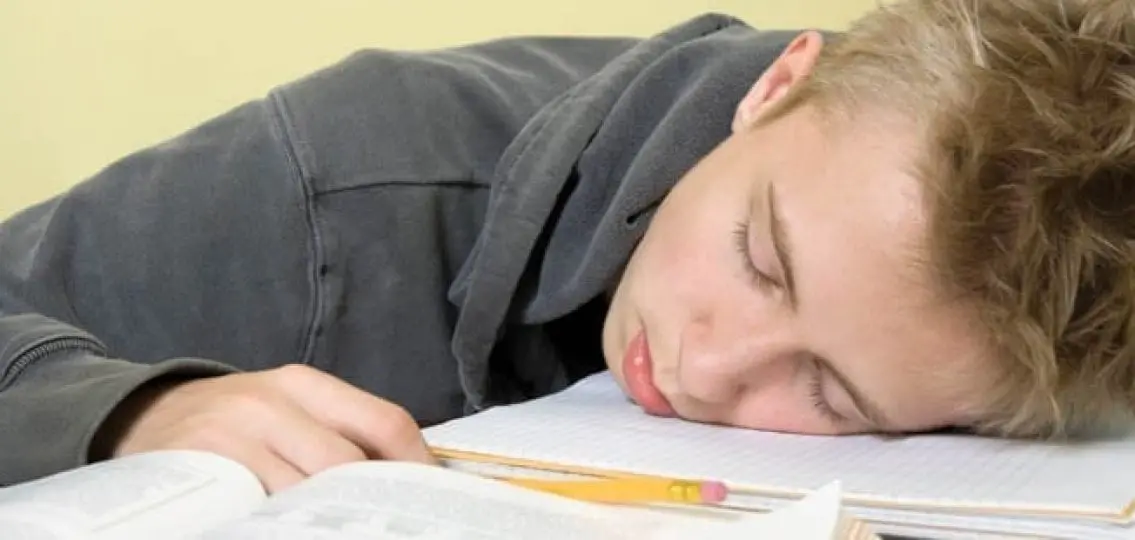For many parents of teens, “I’m sooo tired!” is probably the phrase they hear most often. Parents may know how vital teen sleep is to their well-being, proper growth, mental health, and academics, but they need some tips to help their teens get the rest they need.

For a busy teenager, however, the idea of getting the recommended nine-and-a-half hours of sleep each night is a fantasy that, as a practical matter, simply can’t be achieved. In fact, only about 15 percent of teens are actually getting the sleep they need.
How can parents help their teenagers to get the sleep they need, or at the very least, better sleep? Dr. Sasha Carr, a licensed psychologist and sleep expert with Off to Dreamland Sleep Services has some ideas.
5 Sleep Tips for Teenagers
1. Beds are only for sleep

Instead, prepare a pleasant, comfortable separate space that is conducive to studying so that your teenager associates a bed with sleep—and only sleep.
2. Restrict electronic devices in bed
According to Dr. Carr, the single biggest factor preventing teenagers from getting the sleep they need is taking their smart phone or laptop into bed with them at bedtime. Studies have shown that the blue screen lightwaves may inhibit the secretion of melatonin (the hormone that triggers sleep) and disrupt circadian rhythms (the body’s biological clock), throwing sleep cycles out of whack for a teenager. “Establish a family policy that YOU also follow,” advises Dr. Carr, “and power down by at least 10 p.m. at night. Have a family charging station in a common area (NOT the bedroom) where you and your teen as a family put your phones away for the night.”
3. Establish a bedtime ritual
You can’t control when you fall asleep, but you can create an optimal environment for sleep to take place. Turn all computers, smart phones and devices off at least 30 minutes prior to going to bed. Take a warm shower. For girls, Dr. Carr recommends something as simple as a lotion with a particular scent that she only uses at bedtime as a cue to the brain that it is time for sleep. For boys, perhaps changing into clothes that he only wears at bedtime.
4. Streamline your teen’s morning
Take whatever reasonable accommodations you can in the morning to enable your teenager to sleep in as long as possible. Encourage him or her to be packed up, laid out and ready to go the night before.

5. Model good sleep behavior yourself
Your teenager will notice if you routinely sacrifice sleep due to the demands of work or family or even just to watch late night TV. They may see that you keep your smart phone on your bed stand so you can check your email “one last time.” Dr. Carr warns that teens “may conclude that sacrificing sleep is what I have to do to in order to succeed.” Model the behavior you want your teen to follow. You’ll get a better night’s sleep too.




